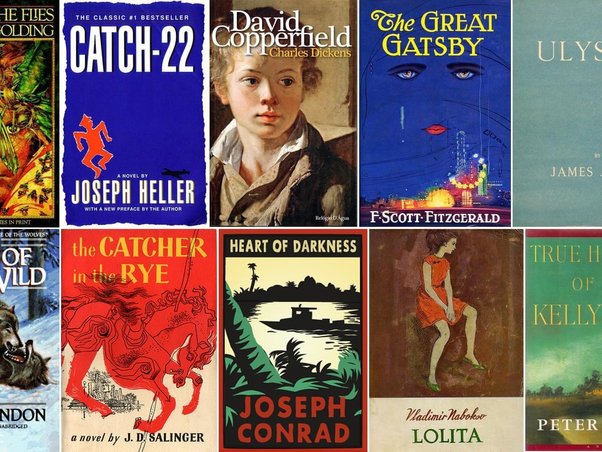What Is the Longest Book in the World? Exploring Literary Records and Epic Works
The world of literature is vast and diverse, comprising countless books of varying lengths and genres. If you're curious about the longest book ever written and eager to explore epic literary works, you've come to the right place. In this article, we will delve into the realm of book records and unveil the longest book in the world, shedding light on its significance and the magnitude of its content.
1. Introduction to Lengthy Literary Works

Lengthy Literary Works
Throughout history, authors have produced extensive literary works that captivate readers with their depth and breadth.
These epic books immerse readers in intricate narratives, exploring complex themes and providing an immersive reading experience.
2. Defining the Longest Book

Longest Book
Determining the longest book poses a unique challenge due to the subjective nature of measuring literary works. Different criteria can be used, such as word count, page count, or even the physical size of the book.
However, for the purpose of this article, we will focus on word count as a primary measure of length.
3. "A la recherche du temps perdu" (In Search of Lost Time) by Marcel Proust
Considered by many as the longest novel ever written, "A la recherche du temps perdu" by Marcel Proust holds a prominent place in literary history.
This seven-volume masterpiece spans an astonishing total of over 1.2 million words. Proust's work explores themes of memory, time, and the complexities of human experience.
4. "Artamène ou le Grand Cyrus" by Madeleine de Scudéry
Another contender for the title of the longest book is "Artamène ou le Grand Cyrus," an epic novel by Madeleine de Scudéry.
This 17th-century French work is a monumental achievement, consisting of ten volumes and totaling over 2 million words. Its sprawling narrative encompasses themes of love, chivalry, and courtly romance.
5. "The MahÄbhÄrata" and "The Ramayana"
In the realm of ancient epic literature, "The MahÄbhÄrata" and "The Ramayana" hold significant positions. These Indian epics are not only monumental in length but also rich in cultural and philosophical significance.
"The MahÄbhÄrata" stretches over 1.8 million words, while "The Ramayana" exceeds 500,000 words. These epic works delve into mythological tales, exploring intricate narratives and ethical dilemmas.
6. "The Blah Story" by Nigel Tomm
While the previous examples highlight celebrated works of literature, it is worth mentioning a unique and lesser-known contender for the longest book title.
"The Blah Story" by Nigel Tomm is a 3,277,227-word novel that pushes the boundaries of literary length. This experimental work challenges traditional narrative structures, immersing readers in an unconventional reading experience.
7. Acknowledging Other Lengthy Works
In addition to the aforementioned books, numerous other lengthy works deserve recognition. Examples include "Clarissa" by Samuel Richardson, "Infinite Jest" by David Foster Wallace, and "Les Misérables" by Victor Hugo.
Each of these books boasts a considerable word count, immersing readers in expansive narratives and exploring profound themes.
8. The Significance of Long Books
Long books offer readers an immersive experience, allowing for deeper exploration of characters, themes, and plotlines. They provide an opportunity to delve into intricate worlds and appreciate the richness of storytelling.
Long books can be a rewarding and intellectually stimulating journey for those seeking a more extensive reading experience.
In conclusion, the longest book in the world is a subject of debate and varying criteria. "A la recherche du temps perdu" by Marcel Proust and "Artamène ou le Grand Cyrus" by Madeleine de Scudéry are renowned for their impressive word counts, spanning over 1.2 million and 2 million words, respectively. Additionally, ancient Indian epics such as "The MahÄbhÄrata" and "The Ramayana" hold significant positions in the world of lengthy literature. While these examples are noteworthy, it is important to acknowledge other lengthy works that provide readers with immersive and expansive narratives. Ultimately, the significance of long books lies in their ability to transport readers into vast and intricate worlds, offering an enriching reading experience. So, let us embrace the magnitude of these literary achievements and embark on literary journeys that expand our horizons.